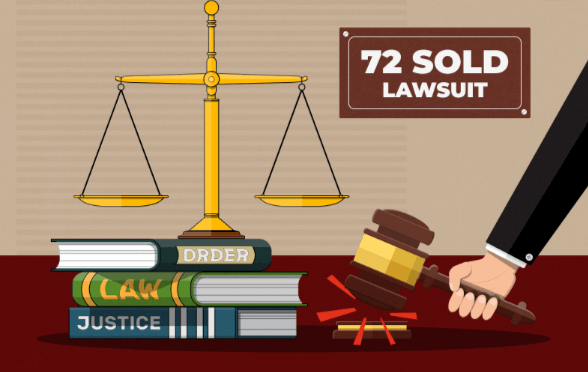72 Sold Lawsuit: What You Need to Know About the Real Estate Lawsuit

72 Sold Lawsuit: What You Need to Know About the Real Estate Lawsuit represents a critical development in the real estate industry, raising significant concerns about business practices and consumer rights. Allegations suggest deceptive advertising and insufficient fee transparency, prompting scrutiny from both buyers and sellers. The case involves multiple parties and has the potential to reshape the landscape of real estate transactions. Understanding its implications may prove essential for informed decision-making in future dealings. What remains to be seen are the broader consequences of this legal action.
Overview of the 72 Sold Lawsuit
The 72 Sold lawsuit has emerged as a significant legal matter within the real estate sector, primarily concerning allegations of deceptive business practices.
This case holds substantial legal ramifications for 72 Sold, potentially affecting its operational integrity and consumer trust.
The outcome may establish precedents that influence regulatory standards and practices within the industry, highlighting the critical importance of transparency in real estate transactions.
Key Allegations and Issues Raised
Allegations surrounding the 72 Sold lawsuit primarily focus on claims of misleading advertising and inadequate disclosure of fees associated with real estate transactions.
Key allegations include deceptive practices that may violate consumer protection laws, raising significant legal issues.
These concerns emphasize the necessity for transparency within the real estate market, as consumers seek to make informed decisions regarding substantial financial commitments.
The Parties Involved in the Case
In the context of the ongoing lawsuit, the parties involved play a significant role in shaping the legal landscape surrounding the allegations.
The plaintiff bears the responsibility of substantiating claims through evidence, while the defendant possesses rights to a fair defense and due process.
Understanding these dynamics is crucial for navigating the complexities of the case and ensuring that all parties engage within the legal framework.
Potential Implications for Buyers and Sellers
Although the ongoing lawsuit surrounding 72 Sold raises significant concerns, its potential implications for buyers and sellers are particularly noteworthy.
Buyers may experience heightened concerns regarding transaction transparency and potential financial liabilities.
Read Also The Science Behind Stucco Tools: Material Testing and Quality Assurance
Conversely, sellers face increased responsibilities to ensure compliance with legal norms and to disclose pertinent information.
Consequently, both parties must navigate a more complex landscape, emphasizing the importance of informed decision-making.
How to Protect Yourself in Real Estate Transactions
While navigating real estate transactions, individuals must employ strategies to safeguard their interests amidst potential legal complexities.
Conducting thorough property inspections is essential to identify any latent issues. Additionally, incorporating contract contingencies allows buyers to protect themselves from unforeseen circumstances.
Conclusion
In the complex tapestry of real estate transactions, 72 Sold Lawsuit: What You Need to Know About the Real Estate Lawsuit serves as a cautionary tale, illuminating the shadows of deception that can obscure the path for buyers and sellers alike. As the scales of justice weigh the allegations of misleading practices, the outcome may redefine the landscape of transparency within the industry. Ultimately, this case symbolizes the imperative for vigilance and informed decision-making, urging participants to navigate the intricate web of real estate with discernment and integrity.





